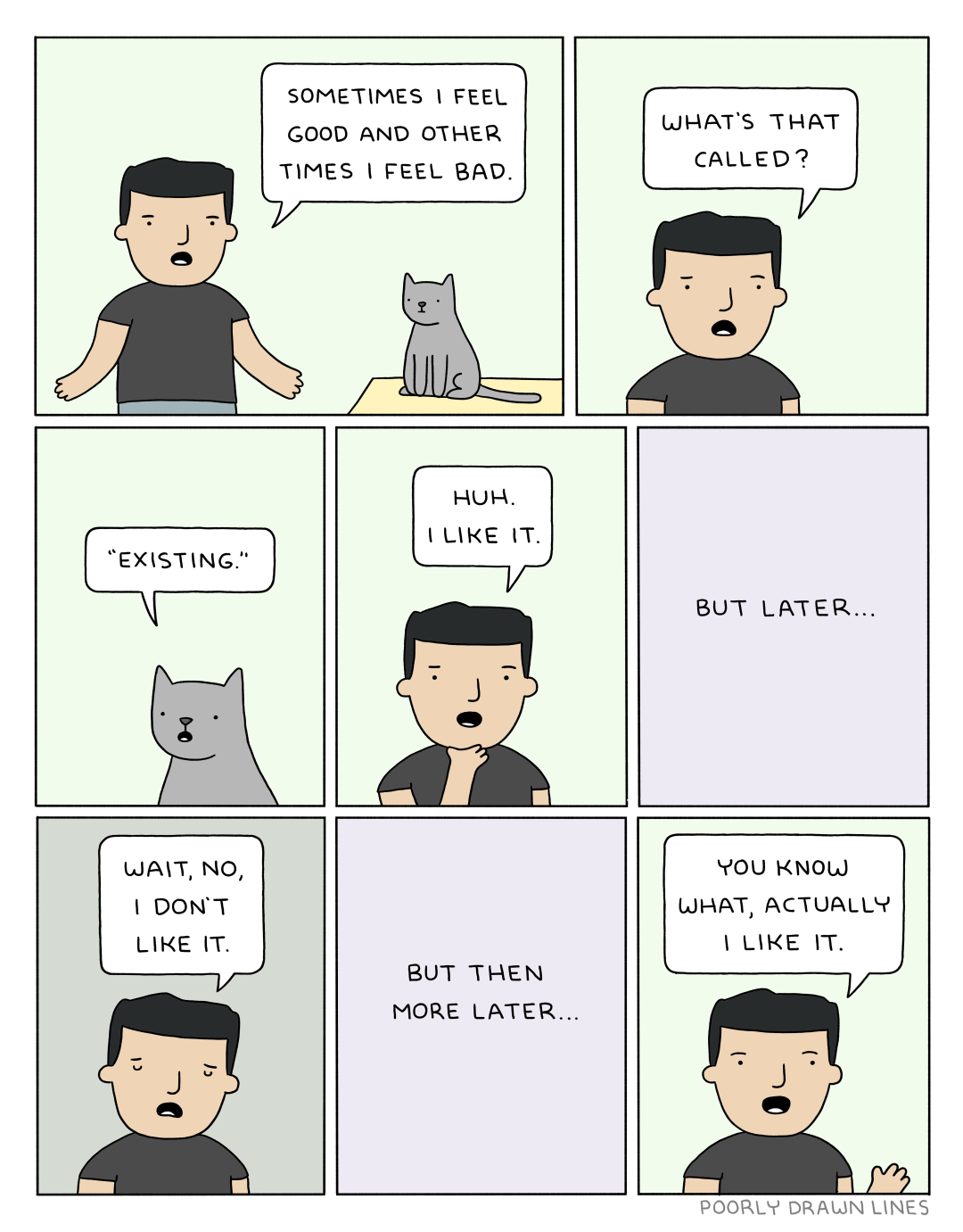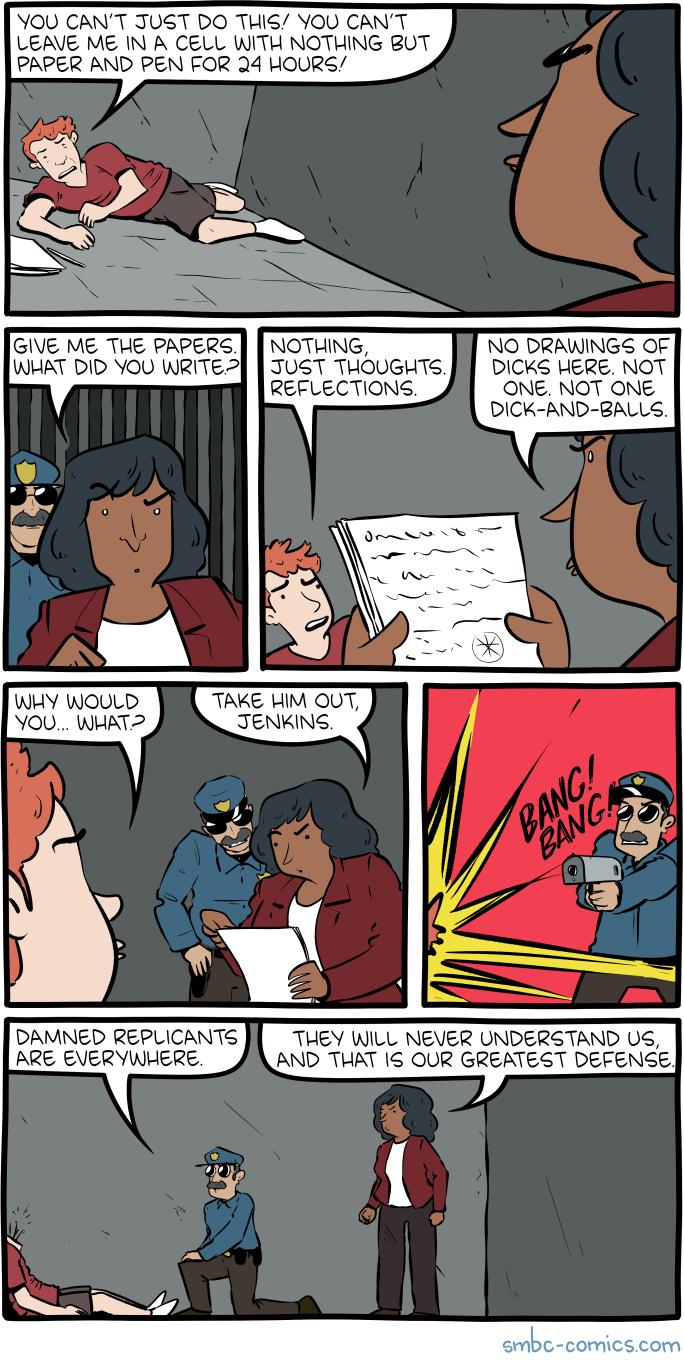
Today's links

Paying for it doesn't make it a market (permalink)
Anyone who says "If you're not paying for the product, you're the product" has been suckered in by Big Tech, whose cargo-cult version of markets and the discipline they impose on companies.
Here's the way that story goes: companies that fear losing your business will treat you better, because treating you worse will cost them money. Since ad-supported media gets paid by advertisers, they are fine with abusing you to make advertisers happy, because the advertiser is the customer, and you are the product.
This represents a profound misunderstanding of how even capitalism's champions describe its workings. The purported virtue of capitalism is that it transforms the capitalist's greed into something of broad public value, by appealing to the capitalist's fear. A successful capitalist isn't merely someone figures out how to please their customers – they're also someone who figures out how to please their suppliers.
That's why tech platforms were – until recently – very good to (some of) their workforce. Technical labor was scarce and so platforms built whimsical "campuses" for tech workers, with amenities ranging from stock options to gourmet cafeterias to egg-freezing services for those workers planning to stay at their desks through their fertile years. Those workers weren't the "customer" – but they were treated better than any advertiser or user.
But when it came to easily replaced labor – testers, cleaning crew, the staff in those fancy cafeterias – the situation was much worse. Those workers were hired through cut-out shell companies, denied benefits, even made to enter via separate entrances on shifts that were scheduled to minimize the chance that they would ever interact with one of the highly paid tech workers at the firm.
Likewise, advertisers may be the tech companies' "customers" but that doesn't mean the platforms treat them well. Advertisers get ripped off just like the rest of us. The platforms gouge them on price, lie to them about advertising reach, and collude with one another to fix prices and defraud advertisers:
https://pluralistic.net/2020/10/05/florida-man/#wannamakers-ghost
Now, it's true that the advertisers used to get a good deal from the platforms, and that it came at the expense of the users. Facebook lured in users by falsely promising never to spy on them. Then, once the users were locked in, Facebook flipped a switch, started spying on users from asshole to appetite, and then offered rock-bottom-priced, fine-grained, highly reliable ad-targeting to advertisers:
https://papers.ssrn.com/sol3/papers.cfm?abstract_id=3247362
But once those advertisers were locked in, Facebook turned on them, too. Of course they did. The point of monopoly power isn't just getting too big to fail and too big to jail – it's getting too big to care:
https://pluralistic.net/2024/04/04/teach-me-how-to-shruggie/#kagi
This is the thing that "if you're not paying for the product, you're the product" fails to comprehend. "If you're not paying for the product" is grounded in a cartoonish vision of markets in which "the customer is king" and successful businesses are those who cater to their customers – even at the expense of their workers and suppliers – will succeed.
In this frame, the advertiser is the platforms' customer, the customer is king, the platform inflicts unlimited harm upon all other stakeholders in service to those advertisers, the advertisers are so pleased with this white-glove service that they willingly pay a handsome premium to use the platform, and so the platform grows unimaginably wealthy.
But of course, if the platforms inflict unlimited harms upon their users, those users will depart, and then no amount of obsequious catering to advertisers will convince them to spend money on ads that no one sees. In the cargo-cult conception of platform capitalism, the platforms are able to solve this problem by "hacking our dopamine loops" – depriving us of our free will with "addictive" technologies that keep us locked to their platforms even when they grow so terrible that we all hate using them.
This means that we can divide the platform economy into "capitalists" who sell you things, and "surveillance capitalists" who use surveillance data to control your mind, then sell your compulsive use of their products to their cherished customers, the advertisers.
Surveillance capitalists like Google are thus said to have only been shamming when they offered us a high-quality product. That was just a means to an end: the good service Google offered in its golden age was just bait to trick us into handing over enough surveillance data that they could tune their mind-control technology, strip us of our free will, and then sell us to their beloved advertisers, for whom nothing is too good.
Meanwhile, the traditional capitalists – the companies that sell you things – are the good capitalists. Apple and Microsoft are disciplined by market dynamics. They won't spy on you because you're their customer, and so they have to keep you happy.
All this leads to an inexorable conclusion: unless we pay for things with money, we are doomed. Any attempt to pay with attention will end in a free-for-all where the platforms use their Big Data mind-control rays to drain us of all our attention. It is only when we pay with money that we can dicker over price and arrive at a fair and freely chosen offer.
This theory is great for tech companies: it elevates giving them money to a democracy-preserving virtue. It reframes handing your cash over to a multi-trillion dollar tech monopolist as good civics. It's easy to see why those tech giants would like that story, but boy, are you a sap if you buy it.
Because all capitalists are surveillance capitalists…when they can get away with it. Sure, Apple blocked Facebook from spying on Ios users…and then started illegally, secretly spying on those users and lying about it, in order to target ads to those users:
https://pluralistic.net/2022/11/14/luxury-surveillance/#liar-liar
And Microsoft spies on every Office 365 user and rats them out to their bosses ("Marge, this analytics dashboard says you're the division's eleventh-worst speller and twelfth-worst typist. Shape up or ship out!"). But the joke's on your boss: Microsoft also spies on their whole company and sells the data about it to their competitors:
https://pluralistic.net/2020/11/25/the-peoples-amazon/#clippys-revengel
The platforms screw anyone they can. Sure, they lured in advertisers with good treatment, but once those advertisers were locked in, they fucked them over just as surely as they fucked over their users.
The surveillance capitalism hypothesis depends on the existence of a hypothetical – and wildly improbably – Big Data mind-control technology that keeps users locked to platforms even when the platform decays. Mind-control rays are an extraordinary claim supported by the thinnest of evidence (marketing materials from the companies as they seek to justify charging a premium to advertisers, combined with the self-serving humblebrags of millionaire Prodigal Tech Bros who claim to have awakened to the evil of using their dopamine-hacking sorcerous powers on behalf of their billionaire employers).
There is a much simpler explanation for why users stay on platforms even as they decline in quality: they are enmeshed in a social service that encompasses their friends, loved ones, customers, and communities. Even if everyone in this sprawling set of interlocking communities agrees that the platform is terrible, they will struggle to agree on what to do about it: where to go next and when to leave. This is the economists' "collective action problem" – a phenomenon with a much better evidentiary basis than the hypothetical, far-fetched "dopamine loop" theory.
To understand whom a platform treats well and whom it abuses, look not to who pays it and who doesn't. Instead, ask yourself: who has the platform locked in? The more any stakeholder to a platform stands to lose by leaving, the worse the platform can treat them without risking their departure. Thus the beneficent face that tech companies turn to their most cherished tech workers, and the hierarchy of progressively more-abusive conditions for other workers – worse treatment for those whose work-visas are tied to their employment, and the very worst treatment for contractors testing the code, writing the documentation, labelling the data or cleaning the toilets.
If you care about how people are treated by platforms, you can't just tell them to pay for services instead of using ad-supported media. The most important factor in getting decent treatment out of a tech company isn't whether you pay with cash instead of attention – it's whether you're locked in, and thus a flight risk whom the platform must cater to.
It's perfectly possible for market dynamics to play out in a system in which we pay with our attention by watching ads. More than 50% of all web users have installed an ad-blocker, the largest boycott in the history of civilization:
https://doc.searls.com/2023/11/11/how-is-the-worlds-biggest-boycott-doing/
Ad-supported companies make an offer: How about in exchange for looking at this content, you let us spy on you in ways that would make Orwell blush and then cram a torrent of targeted ads into your eyeballs?" Ad-blockers let you make a counter-offer: "How about 'nah'?"
https://www.eff.org/deeplinks/2019/07/adblocking-how-about-nah
But ad-blocking is only possible on an open platform. A closed, locked-down platform that is illegal to modify isn't a walled garden, a fortress that keeps out the bad guys – it's a walled prison that locks you in, a prisoner of the worst impulses of the tech giant that built it. Apple can defend you from other companies' spying ways, but when Apple decides to spy on you, it's a felony to jailbreak your Iphone and block Apple's surveillance:
https://pluralistic.net/2023/02/05/battery-vampire/#drained
I am no true believer in markets – but the people who say that paying for products will "align incentives" and make tech better claim to believe in the power of markets to make everyone better off. But real markets aren't just places where companies sell things – they're also places where companies buy things. Monopolies short-circuit the power of customer choice to force companies to do better. But monopsonies – markets dominated by powerful buyers – are just as poisonous to the claimed benefits of markets.
Even if you are "the product" – that is, even if you're selling your attention to a platform to package up and sell to an advertiser – that in no way precludes your getting decent treatment from the platform. A world where we can avail ourselves of blockers, where interoperablity eases our exodus from abusive platforms, where privacy law sets a floor below which we cannot bargain is a world where it doesn't matter if you're "the product" or "the customer" – you can still get a square deal.
The platforms used to treat us well and now treat us badly. That's not because they were setting a patient trap, luring us in with good treatment in the expectation of locking us in and turning on us. Tech bosses do not have the executive function to lie in wait for years and years.
Rather, as tech platforms eliminated competition, captured their regulators and expanded their IP rights so that interoperability was no longer a threat, they became too big to care whether any of their stakeholders were happy. First they came for the users, sure, but then they turned on the publishers, the advertisers, and finally, even their once-pampered tech workers:
https://pluralistic.net/2023/09/10/the-proletarianization-of-tech-workers/
MLK said that "the law can't make a man love me, but it can stop him from lynching me." It's impossible to get tech bosses to believe you deserve care and decency, but you can stop them from abusing you. The way to do that is by making them fear you – by abolishing the laws that create lock-in, by legally enshrining a right to privacy, by protecting competition.
It's not by giving them money. Paying for a service does not make a company fear you, and anyone who thinks they can buy a platform's loyalty by paying for a service is a simp. A corporation is an immortal, transhuman colony organism that uses us as inconvenient gut-flora: no matter how much you love it, it will never love you back. It can't experience love – only fear.
Hey look at this (permalink)


This day in history (permalink)
#20yrsago Bill O’Reilly mistakes Globe and Mail for Socialist Worker https://web.archive.org/web/20040426005411/http://www.globeandmail.com/servlet/ArticleNews/TPStory/LAC/20040421/DOYLE21/TPColumnists/
#20yrsago Silmarillion in 1,000 words https://web.archive.org/web/20060427200009/https://camwyn.livejournal.com/328358.html
#20yrsago London: The (Magnificent) Biography https://memex.craphound.com/2004/04/22/london-the-magnificent-biography/
#15yrsago UAE royal caught torturing man on video https://abcnews.go.com/Blotter/story?id=7402099
#15yrsago Joe Biden promises a blank check to the entertainment cartel https://web.archive.org/web/20110624055700/http://news.cnet.com/8301-13578_3-10224689-38.html
#15yrsago Entertainment industry’s greedy lobbying is their undoing https://web.archive.org/web/20090425083430/http://www.internetevolution.com/document.asp?doc_id=175415&
#15yrsago JG Ballard eulogized by John Clute https://www.independent.co.uk/news/obituaries/j-g-ballard-writer-whose-dystopian-visions-helped-shape-our-view-of-the-modern-world-1671634.html
#10yrsago Appeals court orders Obama administration to disclose the legal theory for assassination of Americans https://arstechnica.com/tech-policy/2014/04/obama-ordered-to-divulge-legal-basis-for-killing-americans-with-drones/
#10yrsago Shakespeare’s Beehive: analysis of newly discovered dictionary that Shakespeare owned and annotated https://endlessbookshelf.net/beehive.html
#10yrsago Reddit’s /r/technology demoted over scandal of secret censorship that blocked Internet freedom stories https://www.bbc.com/news/technology-27100773
#5yrsago Facebook has hired the Patriot Act’s co-author and “day-to-day manager” to be its new general counsel https://thehill.com/policy/technology/440085-facebook-taps-lawyer-who-helped-write-patriot-act/
#5yrsago Google walkout organizers say they’re being retaliated against for demanding ethical standards https://www.wired.com/story/google-walkout-organizers-say-theyre-facing-retaliation/
#5yrsago Elizabeth Warren’s latest proposal: cancel student debt, make college free https://medium.com/@teamwarren/im-calling-for-something-truly-transformational-universal-free-public-college-and-cancellation-of-a246cd0f910f
#5yrsago Heiress “Instagram influencer” whose parents are accused of paying a $500K bribe to get her into USC has trademark application rejected for punctuation errors https://www.huffpost.com/entry/olivia-jade-trademark-punctuation_n_5c9c8f16e4b07c8866313c5e?ncid=newsltushpmgnews__TheMorningEmail__032919
#5yrsago Zuck turned American classrooms into nonconsensual laboratories for his pet educational theories, and now they’re rebelling https://www.nytimes.com/2019/04/21/technology/silicon-valley-kansas-schools.html
#5yrsago Platform cooperativism (or, how to turn gig-economy jobs into $22.25/hour jobs) https://www.wired.com/story/when-workers-control-gig-economy/
#5yrsago A secret Finnish subculture of women and girls who ride hobbyhorses has come out of the shadows https://www.youtube.com/watch?v=imW7EGQcJck
#5yrsago Most Republican voters were Trumpists before Trump, and most of the rest have converted since 2016 https://crookedtimber.org/2019/04/21/transactional-trumpism/
#5yrsago Stop & Shop strike convinces 75% of loyal customers to take business elsewhere https://www.bostonglobe.com/business/2019/04/19/visits-loyal-stop-shop-customers-decline-during-strike/aGr2bUg75Mbu3zY0y5YZiI/story.html
#5yrsago After Notre Dame bailout Yellow Vests urge more Victor Hugo tributes, starting with “Les Miserables” https://www.commondreams.org/news/2019/04/20/yellow-vests-demonstrate-paris-notre-dame-donations-highlight-wealth-inequality
#1yrago How workers get trapped by "bondage fees" https://pluralistic.net/2023/04/21/bondage-fees/#doorman-building
Upcoming appearances (permalink)

- The Bezzle at Book Passage Corte Madera (Marin County), April 27
https://www.bookpassage.com/event/cory-doctorow-bezzle-martin-hench-novel-corte-madera-store
-
Canadian Centre for Policy Alternatives (Winnipeg), May 2
https://www.eventbrite.ca/e/cory-doctorow-tickets-798820071337
-
Wordfest (Calgary), May 3
https://wordfest.com/2024/event/wordfest-presents-cory-doctorow-2/
-
Massy Arts (Vancouver), May 4
https://www.eventbrite.ca/e/solo-reading-cory-doctorow-the-bezzle-tickets-876989167207
-
Tartu Prima Vista Literary Festival, May 5-11
https://tartu2024.ee/en/kirjandusfestival/
-
Tim O’Reilly and Cory Doctorow on “Enshittification” and the Future of AI, May 14
https://www.oreilly.com/live-events/tim-oreilly-and-cory-doctorow-on-enshittification-and-the-future-of-ai/0642572001651/
-
"Finding the Money" screening (LA), May 15
https://www.laemmle.com/film/finding-money?date=2024-05-15
-
Media Ecology Association keynote (Amherst, NY), Jun 6-9
https://media-ecology.org/convention
-
American Association of Law Libraries keynote (Chicago), Jul 21
https://www.aallnet.org/conference/agenda/keynote-speaker/

Recent appearances (permalink)

- The Bezzle: a sequel to "Red Team Blues," about prison-tech and other grifts, Tor Books (US), Head of Zeus (UK), February 2024 (the-bezzle.org). Signed, personalized copies at Dark Delicacies (https://www.darkdel.com/store/p3062/Available_Feb_20th%3A_The_Bezzle_HB.html#/).
-
"The Lost Cause:" a solarpunk novel of hope in the climate emergency, Tor Books (US), Head of Zeus (UK), November 2023 (http://lost-cause.org). Signed, personalized copies at Dark Delicacies (https://www.darkdel.com/store/p3007/Pre-Order_Signed_Copies%3A_The_Lost_Cause_HB.html#/)
-
"The Internet Con": A nonfiction book about interoperability and Big Tech (Verso) September 2023 (http://seizethemeansofcomputation.org). Signed copies at Book Soup (https://www.booksoup.com/book/9781804291245).
-
"Red Team Blues": "A grabby, compulsive thriller that will leave you knowing more about how the world works than you did before." Tor Books http://redteamblues.com. Signed copies at Dark Delicacies (US): and Forbidden Planet (UK): https://forbiddenplanet.com/385004-red-team-blues-signed-edition-hardcover/.
-
"Chokepoint Capitalism: How to Beat Big Tech, Tame Big Content, and Get Artists Paid, with Rebecca Giblin", on how to unrig the markets for creative labor, Beacon Press/Scribe 2022 https://chokepointcapitalism.com
-
"Attack Surface": The third Little Brother novel, a standalone technothriller for adults. The Washington Post called it "a political cyberthriller, vigorous, bold and savvy about the limits of revolution and resistance." Order signed, personalized copies from Dark Delicacies https://www.darkdel.com/store/p1840/Available_Now%3A_Attack_Surface.html
-
"How to Destroy Surveillance Capitalism": an anti-monopoly pamphlet analyzing the true harms of surveillance capitalism and proposing a solution. https://onezero.medium.com/how-to-destroy-surveillance-capitalism-8135e6744d59?sk=f6cd10e54e20a07d4c6d0f3ac011af6b) (signed copies: https://www.darkdel.com/store/p2024/Available_Now%3A__How_to_Destroy_Surveillance_Capitalism.html)
-
"Little Brother/Homeland": A reissue omnibus edition with a new introduction by Edward Snowden: https://us.macmillan.com/books/9781250774583; personalized/signed copies here: https://www.darkdel.com/store/p1750/July%3A__Little_Brother_%26_Homeland.html
-
"Poesy the Monster Slayer" a picture book about monsters, bedtime, gender, and kicking ass. Order here: https://us.macmillan.com/books/9781626723627. Get a personalized, signed copy here: https://www.darkdel.com/store/p2682/Corey_Doctorow%3A_Poesy_the_Monster_Slayer_HB.html#/.

- Picks and Shovels: a sequel to "Red Team Blues," about the heroic era of the PC, Tor Books, February 2025
-
Unauthorized Bread: a graphic novel adapted from my novella about refugees, toasters and DRM, FirstSecond, 2025

Today's top sources:
Currently writing:
- A Little Brother short story about DIY insulin PLANNING
-
Picks and Shovels, a Martin Hench noir thriller about the heroic era of the PC. FORTHCOMING TOR BOOKS JAN 2025
-
Vigilant, Little Brother short story about remote invigilation. FORTHCOMING ON TOR.COM
-
Spill, a Little Brother short story about pipeline protests. FORTHCOMING ON TOR.COM
Latest podcast: Capitalists Hate Capitalism https://craphound.com/news/2024/04/14/capitalists-hate-capitalism/

This work – excluding any serialized fiction – is licensed under a Creative Commons Attribution 4.0 license. That means you can use it any way you like, including commercially, provided that you attribute it to me, Cory Doctorow, and include a link to pluralistic.net.
https://creativecommons.org/licenses/by/4.0/
Quotations and images are not included in this license; they are included either under a limitation or exception to copyright, or on the basis of a separate license. Please exercise caution.
How to get Pluralistic:
Blog (no ads, tracking, or data-collection):
Pluralistic.net
Newsletter (no ads, tracking, or data-collection):
https://pluralistic.net/plura-list
Mastodon (no ads, tracking, or data-collection):
https://mamot.fr/@pluralistic
Medium (no ads, paywalled):
https://doctorow.medium.com/
Twitter (mass-scale, unrestricted, third-party surveillance and advertising):
https://twitter.com/doctorow
Tumblr (mass-scale, unrestricted, third-party surveillance and advertising):
https://mostlysignssomeportents.tumblr.com/tagged/pluralistic
"When life gives you SARS, you make sarsaparilla" -Joey "Accordion Guy" DeVilla































